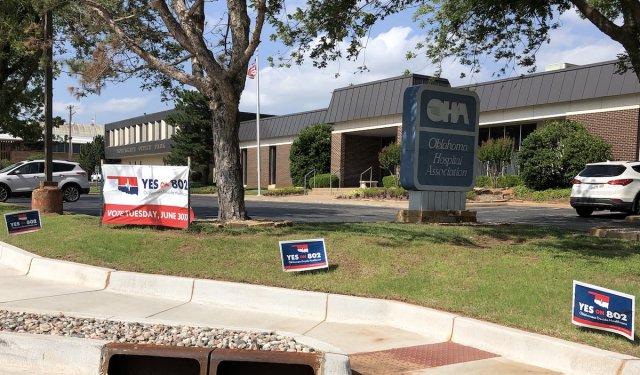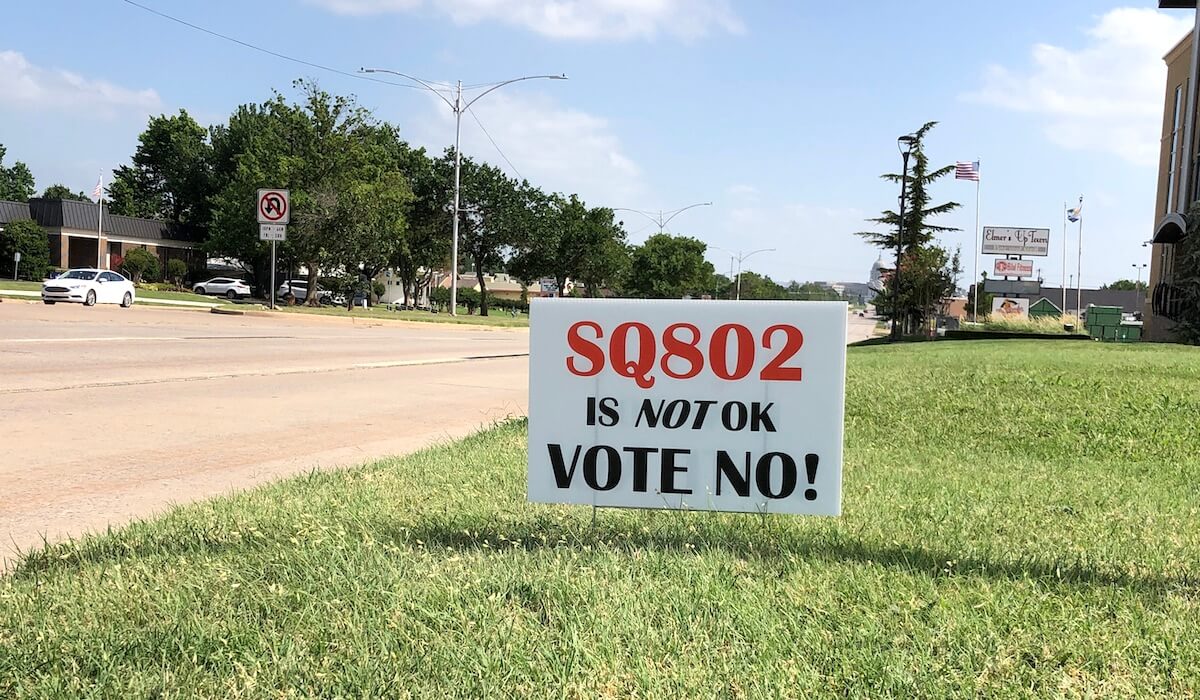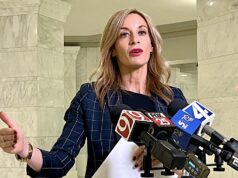

State Question 802, which will expand Medicaid coverage in Oklahoma, squeaked into law by a hair tonight, winning by about 6,500 votes out of approximately 669,000 cast.
The measure will extend Medicaid health coverage to all adult Oklahomans under 65 who make less than 133 percent of the federal poverty level. For a single person, that’s about $17,000 annually.
Oklahoma was one of only 14 states that had not expanded Medicaid as allowed under the Affordable Care Act. The state also has the second-highest uninsured rate in the country, with 14.2 percent, or 548,000 people, lacking health insurance.
To qualify for Medicaid under current rules, an adult must either have a disability or have a dependent child and an income well below the poverty level.
State Question 802 puts the new Medicaid eligibility cutoff into the Oklahoma Constitution and is set to go into effect no later than July 2021.
The measure is expected to bring in more than 200,000 new Medicaid enrollees.
Yes campaign drew wide range of support
The campaign in favor of SQ 802 has been pitching Medicaid expansion as “not only the right thing to do, but also the fiscally responsible thing to do,” Yes on 802 campaign manager Amber England told reporters earlier Tuesday.
The federal government pays 90 percent of the cost of Medicaid expansion. The state’s 10 percent will cost approximately $164 million, according to projections from the Oklahoma Health Care Authority.
Proponents have framed the approximately $1 billion of federal funding for the program as money Oklahoma currently sends to other states. Supporters have also emphasized the potential benefit to rural hospitals, many of which suffer financially and are particularly hard hit by the cost of serving uninsured populations.
The campaign attracted strong grassroots support in the petition phase, submitting almost 300,000 valid signatures. It went on to pull in a wide range of endorsements, including from the Oklahoma Hospital Association, the State Chamber of Oklahoma, the state’s Catholic bishops and Planned Parenthood.
The most vocal opposition came from conservative groups such as the Oklahoma Council for Public Affairs and Americans for Prosperity, which argued that the measure would be too costly.
“We just simply don’t have the budget for it, especially through COVID but even before that,” Joey Magana, the state deputy for Americans For Prosperity, previously told NonDoc. “Putting that into the budget without either raising taxes or cutting other core services — we just don’t think it would be possible.”

Gov. Kevin Stitt also spoke out against 802.
“In my opinion, 802 is really harmful for Oklahoma because it’s going to be put into our constitution,” Stitt told reporters earlier today. “So if that passes it goes into our constitution, it gives us no flexibility. We have to fund that for the next fifty years, hundred years.”
A poll by Amber Integrated in early June showed the Yes campaign with a 60 percent lead, but in the end it passed by less than a percentage point. That victory was mostly thanks to votes from the state’s urban centers. The final precincts from Oklahoma and Tulsa counties trailed in toward the end of the night, which made for a nail-biting finish after the proposal had been rejected in much of rural Oklahoma.
And now, to come up with the funding
Now that SQ 802 has passed, the Oklahoma Legislature will be tasked with putting together the state’s share of funding.
Earlier this year, the Legislature assembled a funding package for Gov. Stitt’s alternative version of Medicaid expansion, known as Soonercare 2.0. However, the governor vetoed a bill that would have increased a hospital fee in order to pay for the bulk of the expansion.
In his veto message, the governor faulted the bill for not funding the program fully. He also mentioned increased costs resulting from COVID-19, saying that high unemployment would increase Medicaid enrollment under the expansion.
He raised the issue of funding again at the press conference today.
“You’re either going to raise taxes — which I’m never going to be for that, as the governor,” Stitt said. “I think the state can never spend enough money. We can’t just keep raising taxes on hard-working Oklahomans. So, secondly, the only other option would be to take that out of certain state agencies.”
England was dismissive of this concern.
“I think the governor doesn’t have a very good memory,” she said, referencing the bill Stitt vetoed. “He just had an agreement with the Hospital Association and the Legislature to fund it this year without raising taxes. What’s wasteful is leaving $ 1 billion on the table every year that we could have been bringing home to invest in our communities.”




















